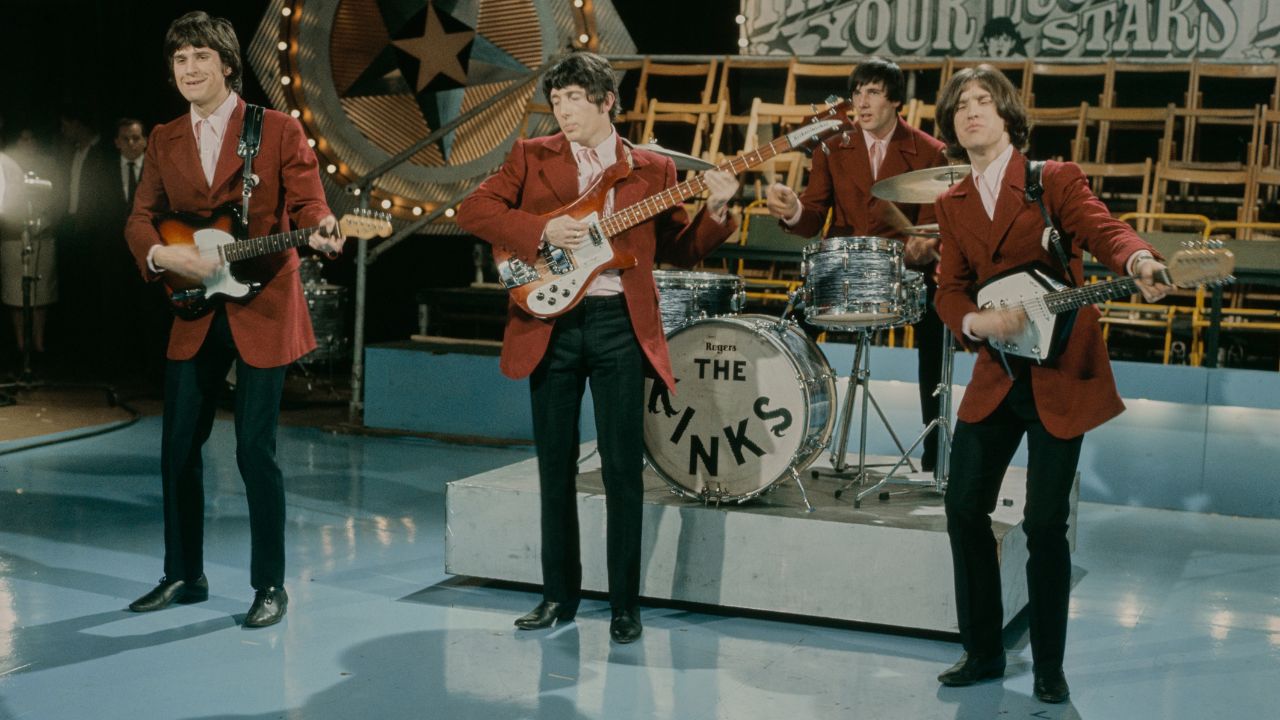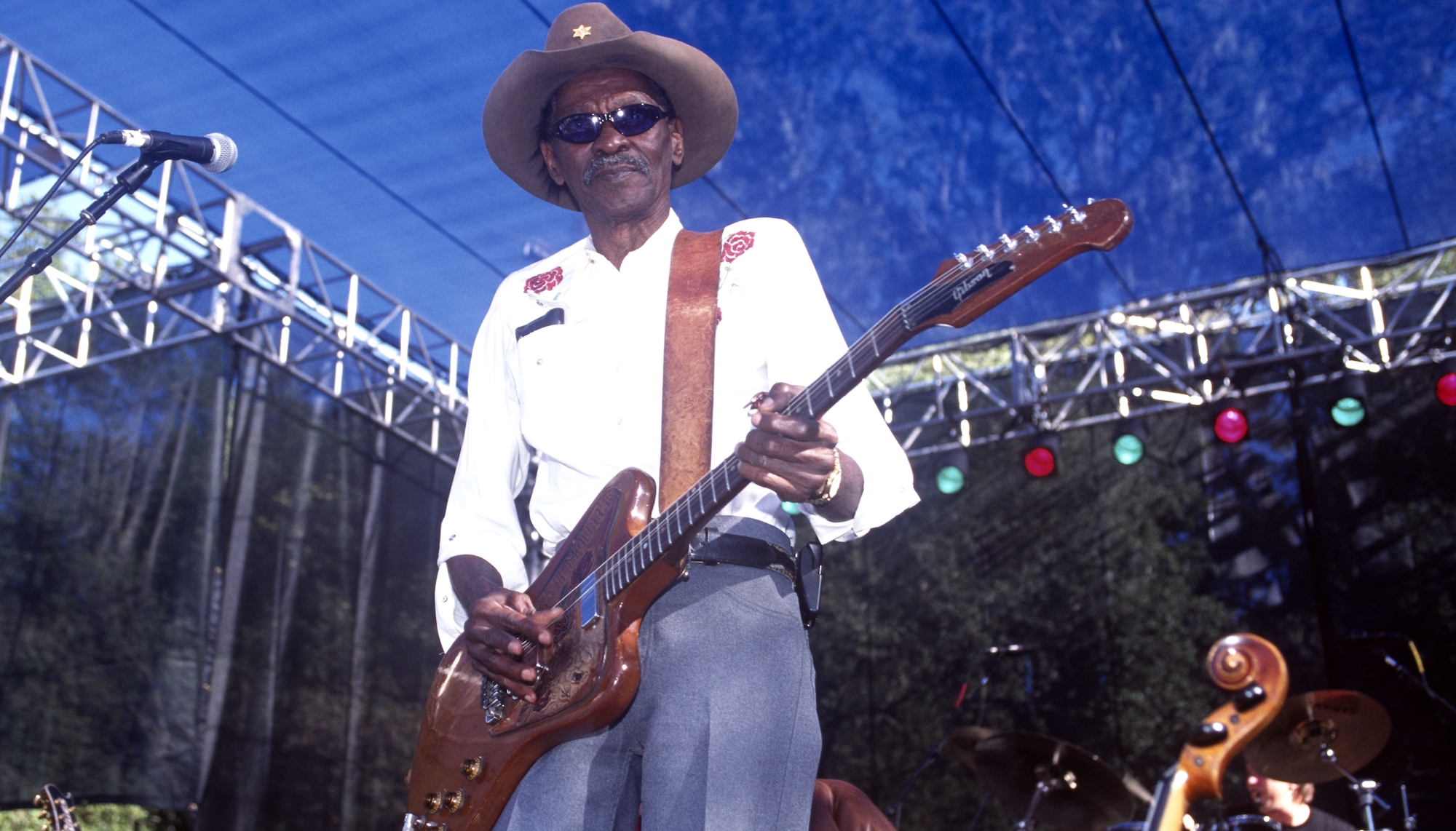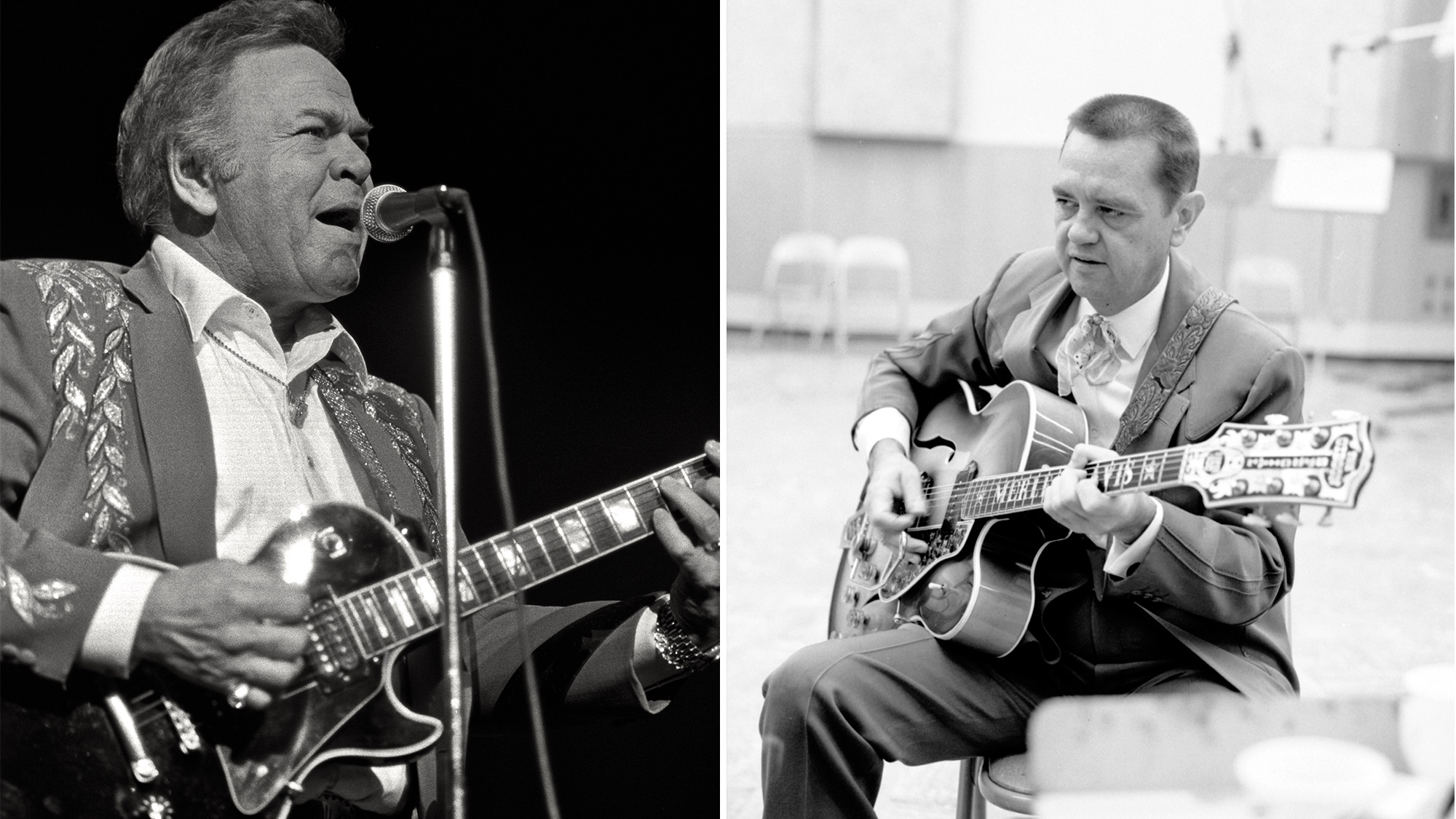Interview: Guitarist Rob Balducci Discusses Teaching and His Instructional DVD, 'Innovative Guitar: Rock Beyond The Boundaries'

Guitarist Rob Balducci released his debut album, Balance, in 1995 and quickly gained national attention for his technique and compositional skills.
By the time of his second release, Mantra, he was signed to Steve Vai’s Favored Nations label. Since then, he has released two more albums, Color of Light and Violet Horizon.
Balducci stays busy in the studio and on the road, gigging with his band and as a clinician. He recently completed two weeks of clinics in Italy and is now working on a new release.
In this interview, he discusses his work as a performer and an instructor and offers some insight about the learning process.
GUITAR WORLD: You recently released your first instructional DVD through the Rock House Method. What made this the right time?
I teach a lot, and it’s cool to get something released and get it done the way I want it to be done. There are so many instructional DVDs out there that I wanted to be sure that this one covered things that I think are important.
Such as?
Get The Pick Newsletter
All the latest guitar news, interviews, lessons, reviews, deals and more, direct to your inbox!
Being a guitar player, I’m also a fan of guitar stuff, so I have all the DVDs and a lot of them are, “Here’s my riff to my song and here’s how you play it,” and then they play it fast and slow. I didn’t want my DVD to be run of the mill. Stuff that’s important to me is songwriting, inspiration about how to write songs, definitely some technique stuff, but I wanted to cover the other side as well — not only how you play fast, but also how to play with feeling and stuff like that.
You offer a Lick of the Week on your website. When you’re giving content away, how do you also promote a DVD?
The Lick of the Week concept came up a long time ago, and I’ve been doing it for a while, but it can be anything — me showing somebody how to play something, live performance footage; it says “Lick of the Week,” but it’s six or seven minutes. I’m recording my next CD now, and it shows me doing guitar tracks. I think it’s a good thing because it gives people something to look at and maybe builds a buzz, and people will then buy my CD and DVD. I’ve gotten good responses from it. Again, I always think about what I would love to see, and what I don’t see people showing, I try to do myself.
How far along are you with the new album?
I have basic tracks to five songs done with a band and I’m writing the next half of the record that I will do with a different rhythm section just to change things up.
Guitarist, musician, composer, producer, instructor — what does each one fulfill?
If you’re a composer and a songwriter, I think that being a producer falls into the same kind of bag, because if you’re a songwriter and you arrange your own songs, producers most of the time come in and give you ideas of what to do. I usually co-produce with someone so that I have an outside opinion, but most of the time an artist knows what they want to hear. I like going to the studio. It’s a cool part of the creative process, and what I get out of that is the excitement of performing and recording. I get excited when a song is done because a lot of labor goes into the writing of a piece, so it’s like a breath, like, “Ah, it’s finally done,” and then I have to do the next one!
So there is creative satisfaction in that. As far as being an instructor, I’m a big believer in teaching and taking lessons. You get a lot out of seeing someone get excited about playing, and also you learn from the students because no one looks at the guitar the same way. You show somebody something, and they take what you give them and say, “I see it like that.” You always learn from different perspectives and I find that satisfying as well.
What do students want to know?
I think that what people seem to initially get off on is always the technical ability. They’re fascinated with, “How can I get faster?” My thing as a teacher is to always try to turn them on to other things and let them know that’s one part of playing, but it’s not the most important part. I try to turn them on to my songwriting process, which is trying to get stuff from your own life. I’ll do an exercise and I’ll tell them, “What I want you to do is go home and come up with a chord that reminds you of your mom or dad or pet,” abstract stuff like that. The cool thing is that everyone has a different chord, so you get your personal stuff into your music. Once you start telling them that, they seem to like that type of aspect.
Has the Internet changed what students want to know?
I don’t think so. It’s the same issue: everyone wants it right away. After two weeks, they want to play a song. It’s the discipline factor of actually sitting down, practicing and learning, and I think that applies to everything. It’s always been an issue. People want fast results without putting in the work, and it just doesn’t happen that way.
A lot of times, people come in and want to learn the newest riff. Even when I started teaching, I would not teach them that, or teach them a song right away, because you don’t get a lot out of it. Now you can go on to the Internet and type in, “How do I play so-and-so,” and a guy is there showing you how to play it. So the need for that is down, and I think people are craving stuff that will help them more creatively.
Keep up with Balducci at his official website.
— Alison Richter
Alison Richter interviews artists, producers, engineers and other music industry professionals for print and online publications. Read more of her interviews right here.
Alison Richter is a seasoned journalist who interviews musicians, producers, engineers, and other industry professionals, and covers mental health issues for GuitarWorld.com. Writing credits include a wide range of publications, including GuitarWorld.com, MusicRadar.com, Bass Player, TNAG Connoisseur, Reverb, Music Industry News, Acoustic, Drummer, Guitar.com, Gearphoria, She Shreds, Guitar Girl, and Collectible Guitar.
“Chuck Berry's not a very good guitar player. He's a clown. He runs all over the guitar, just like any one of these old rock players would do, and makes no sense”: Clarence “Gatemouth” Brown pulled no punches when speaking about his fellow guitar heroes
“I said, ‘Merle, do you remember this?’ and I played him his song Sweet Bunch of Daisies. He said, ‘I remember it. I've never heard it played that good’”: When Roy Clark met his guitar hero









